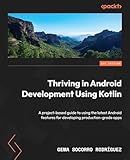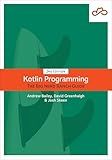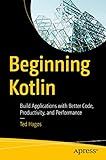Best Kotlin Development Tools to Buy in November 2025

Thriving in Android Development Using Kotlin: A project-based guide to using the latest Android features for developing production-grade apps



Kotlin Essentials (Kotlin for Developers Book 1)



Kotlin Programming: The Big Nerd Ranch Guide



Effective Kotlin: Best Practices (Kotlin for Developers Book 5)



Beginning Kotlin: Build Applications with Better Code, Productivity, and Performance



Head First Android Development: A Learner's Guide to Building Android Apps with Kotlin



Android UI Development with Jetpack Compose: Bring declarative and native UI to life quickly and easily on Android using Jetpack Compose and Kotlin


To disable compose reloading in Kotlin, you can remove the recompose function that triggers the recomposition of the UI elements. Instead, you can manually trigger recomposition only when needed by using the Modifier.recompose function. This way, you have more control over when the UI elements are recomposed, allowing you to optimize performance and avoid unnecessary re-renders of the UI. Another approach is to use the remember and callback functions to cache the values of the UI elements and only update them when necessary. By using these techniques, you can effectively disable compose reloading in Kotlin and improve the overall performance of your app.
How to stop compose from automatically reloading in Kotlin?
To stop compose from automatically reloading in Kotlin, you can disable the Hot Reload feature. You can do this by adjusting the settings in Android Studio.
- In Android Studio, go to "File" > "Settings" (or press Ctrl + Alt + S on your keyboard).
- In the Settings window, go to "Languages & Frameworks" > "Compose".
- Uncheck the "Enable Hot Reload" option.
- Click on "Apply" and then "OK" to save your changes.
By disabling the Hot Reload feature, compose will no longer automatically reload when you make changes to your code.
How to optimize development workflow by disabling compose reloading in Kotlin?
To optimize development workflow by disabling compose reloading in Kotlin, you can follow these steps:
- Go to your project's build.gradle file.
- Add the following line inside the android block:
android { ... buildFeatures { compose true } composeOptions { hotReload = false } }
- Sync your project to apply the changes.
By disabling compose reloading, you will prevent the automatic reloading of the UI when code changes are made, which can improve build times and reduce distractions during development. This can be especially helpful for larger projects where frequent changes might slow down the workflow.
What are the alternatives to compose reloading in Kotlin?
- Using ViewModels: Instead of manually reloading data when the view is recreated, you can use ViewModels to retain data across configuration changes. ViewModels are designed to store and manage UI-related data in a lifecycle-aware way.
- Using LiveData: LiveData is an observable data holder class that is lifecycle-aware. By using LiveData to store and update your data, you can automatically update your UI when the data changes, without the need for manual reloading.
- Using Kotlin Coroutines: Kotlin Coroutines provide a way to perform asynchronous operations in a more concise and readable way. By using coroutines to fetch data from a remote data source, you can update your UI seamlessly without the need for manual reloading.
- Using Data Binding: Data binding is a technique that allows you to declaratively bind UI elements in your layout to data sources in your app. By using data binding, you can automatically update your UI when the underlying data changes without the need for manual reloading.
- Using Room Persistence Library: Room is a SQLite object mapping library that provides an abstraction layer over SQLite database operations. By using Room to store and access your data, you can easily cache and retrieve data without the need for manual reloading.
What is the default behavior of compose reloading in Kotlin?
In Kotlin, the default behavior of compose reloading is to automatically update the UI whenever the state of the composable function changes. This means that when any mutable state used within a composable function is modified, the UI will be re-rendered to reflect the changes. This allows for a smooth and reactive user interface experience without the need for manual updates.
